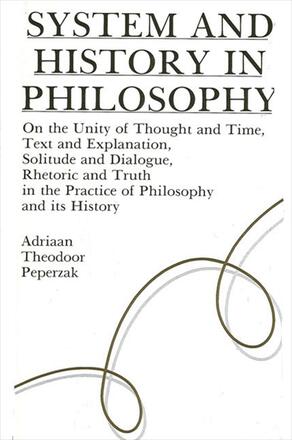
System and History in Philosophy
On the Unity of Thought & Time, Text & Explanation, Solitude & Dialogue, Rhetoric & Truth in the Practice of Philosophy and its History
Alternative formats available from:
Description
The book begins with the problem of the relationship between systematic philosophy and the history of philosophy. Why does philosophy attach so much importance to history? Consideration of this question is an essential part of metaphysics, and it has important consequences for the methodology of both history and philosophy.
An analysis of the problem that begins the book leads to many other fundamental questions concerning the nature of philosophy. In treating these issues the author discusses positions taken on them by Russell, Rorty, Heidegger, Gadamer, Levinas, Ricoeur, Derrida, and others of our century. He also draws inspiration from Plato, Plotinus, Augustine, Spinoza, Kant, Hegel, and Nietzsche.
Adriaan Theodoor Peperzak is Full Professor and Chair of Epistemology, Metaphysics, and Ethics in the Philosophy Department of the University of Nijmegen, The Netherlands.